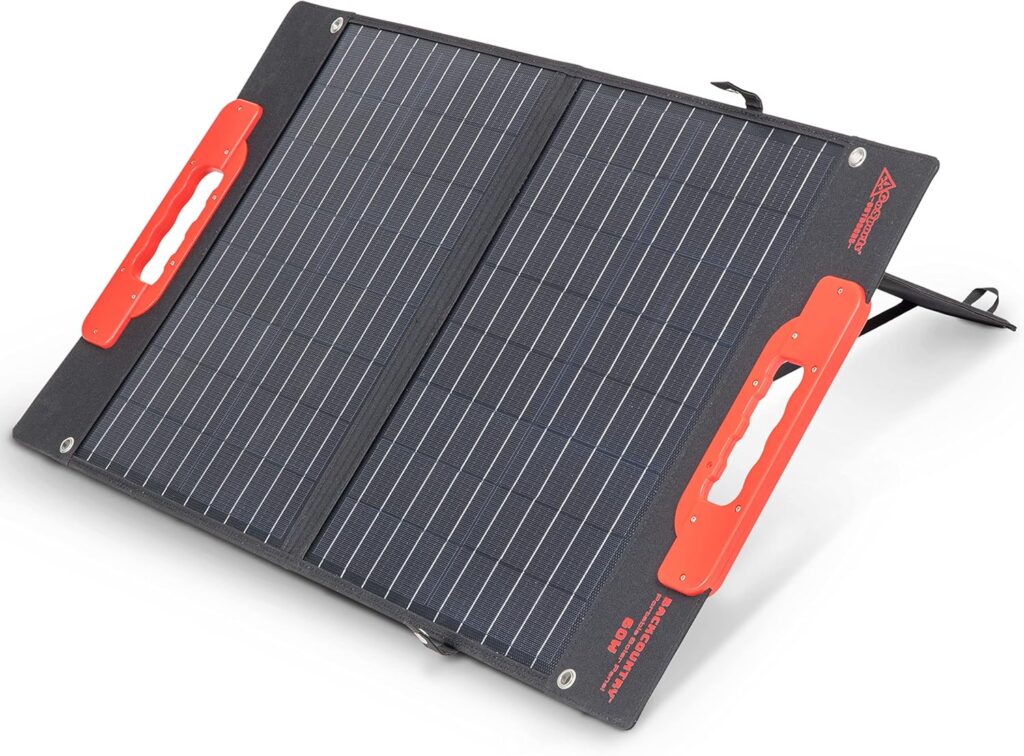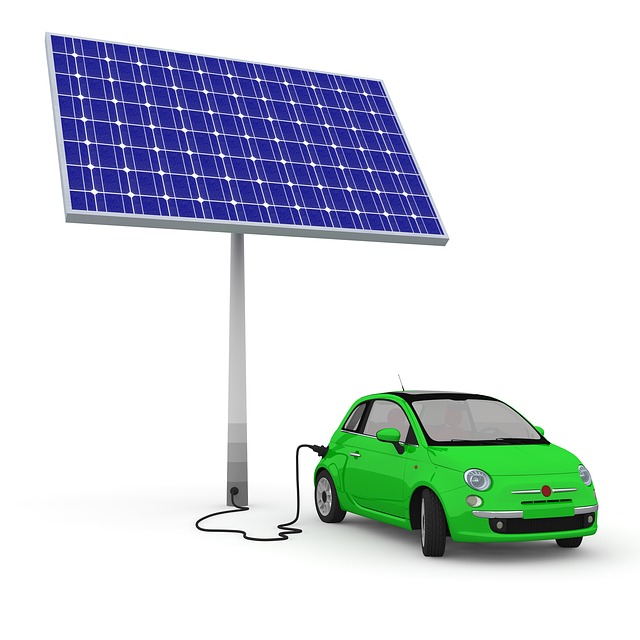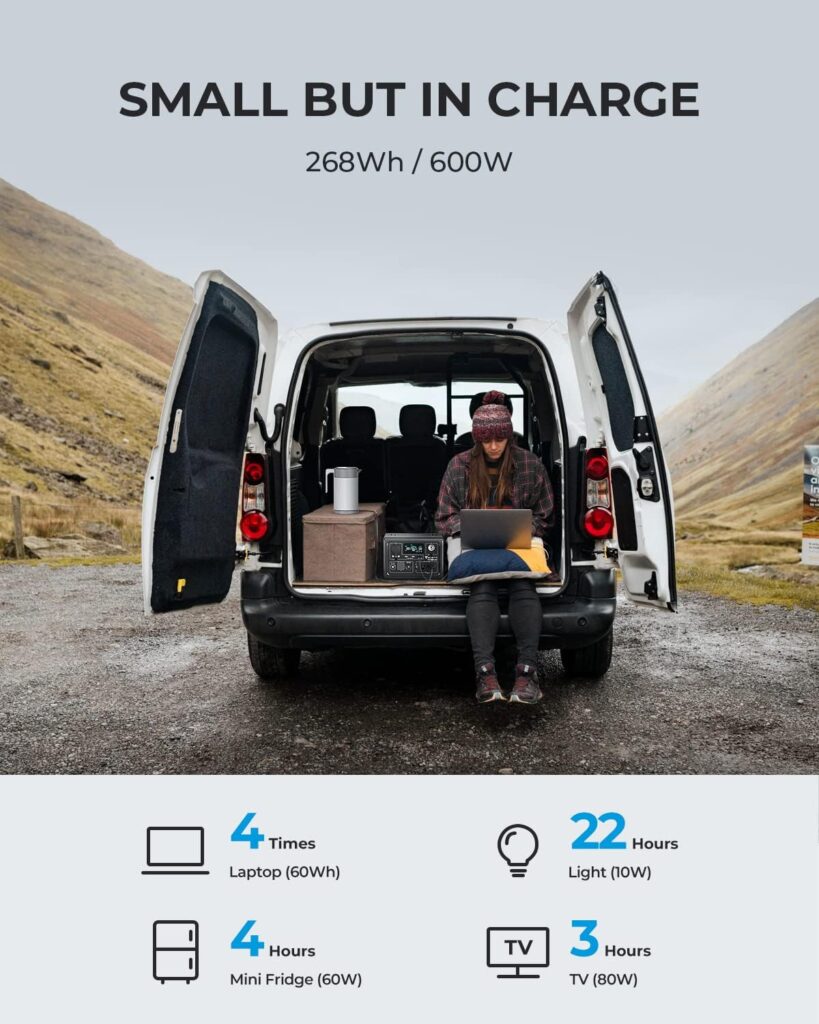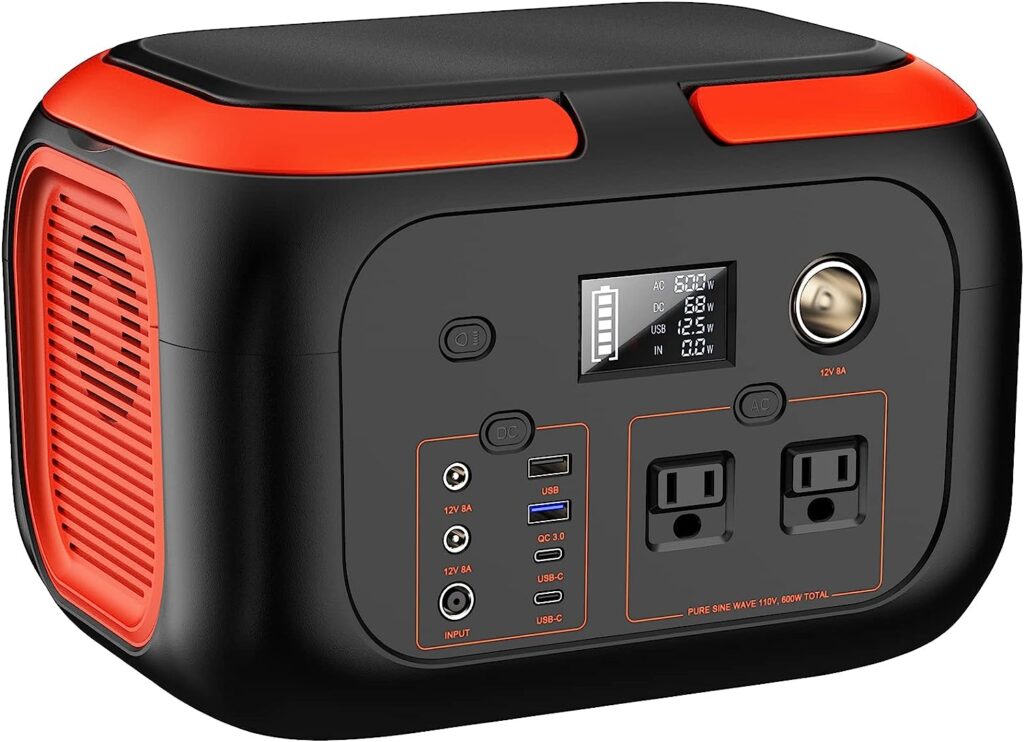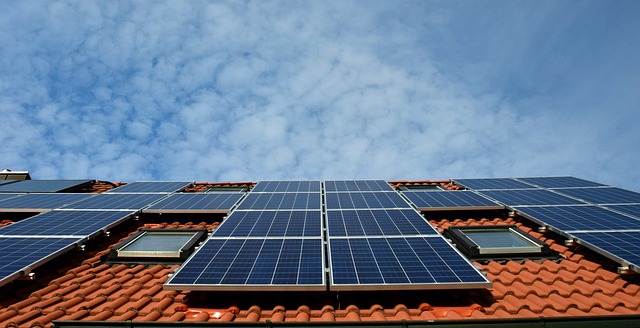Have you ever found yourself in the midst of an exciting outdoor adventure, only to realize your devices are running out of juice? If you’re an avid camper, hiker, or simply love the great outdoors, the “Backcountry Portable Solar Panels, 110W or 60W – IP65 Water Resistant Solar Charger with 3 USB Ports for Phones and DC Out for Power Stations” might just be what you’re looking for.
Overview of Backcountry Portable Solar Panels
When it comes to harnessing the power of the sun to keep your devices charged, the Backcountry Portable Solar Panels stand out. These solar panels combine the practicality of being lightweight and foldable with the durability needed for outdoor adventures.
Key Features
From off-grid power solutions to easy setup, let’s take a closer look at what makes these solar panels exceptional.
Off-Grid Power Solution
The solar panels come in two variants: 110W and 60W. Both options make it simple to harness sunlight and power various devices, proving beneficial for both emergencies and outdoor activities.
Specifications:
| Feature | 110W Model | 60W Model |
|---|---|---|
| Max Power | 110 Watts | 60 Watts |
| USB Ports | 3 | 3 |
| DC Output | Yes | Yes |
| Weight | 7.5 lbs | 5.5 lbs |
Having multiple USB ports (3 to be exact) allows you to charge phones, tablets, and other small electronics effortlessly. The DC output is ideal for recharging compatible power stations.
Lightweight and Foldable Setup
One of the standout features is its lightweight design. Even the more powerful 110W version weighs only 7.5 lbs. For those who pack light, the 60W model, at 5.5 lbs, is a gem. The ergonomic handles make carrying a breeze, and the kickstands ensure easy setup on any surface, making days away backpacking more feasible.
Durable and Water Tight
Durability is crucial when it comes to outdoor gear. The solar panels are enveloped in a heavy-duty polymer and reinforced with ergonomic handles at both ends. Moreover, they boast an IP65 rating, making them water-resistant against dust and rain (though they’re not meant to be submerged).
Durability Features:
| Element | Specifications |
|---|---|
| Shell Material | Heavy-duty polymer |
| Water Resistance Rating | IP65 |
| Dust Proof | Yes |
Ideal for Emergency Situations
In the event of power outages, these solar panels can be lifesavers. You can charge and power essential devices like smartphones, tablets, floodlights, and battery generators. It’s also perfect for recharging Backcountry Portable Power Stations and other power stations with DC 7909 power pack inputs.
User-Friendly
Ease of use is crucial, particularly for those who may not be tech-savvy. The product includes a detailed user manual, guiding you every step of the way to get the most out of your solar panels.
Hands-On Experience
So, what’s it like using these solar panels? Let’s walk through their performance, setup, and overall user experience.
Easy to Transport and Set Up
As mentioned earlier, the panels are lightweight and come with ergonomic handles. You can easily carry them to your camping site. The foldable design means they take up minimal space. Furthermore, the two kickstands included make setting up on uneven ground an easy feat.
Charging Efficiency
Both models efficiently harness sunlight even on cloudy days. It’s noteworthy that the 110W model, due to its higher capacity, charges devices quicker than the 60W model. However, the 60W model is far from a slouch and provides more than adequate charging power for smaller gadgets.
Charging Time Comparison:
| Device | Approx Charging Time (110W) | Approx Charging Time (60W) |
|---|---|---|
| Smartphone | 1-1.5 hours | 2-2.5 hours |
| Tablet | 2-3 hours | 3-4 hours |
| Small Power Station | 6-8 hours | 10-12 hours |
Durability in Outdoor Conditions
Weather can be unpredictable, especially when you’re out in nature. The water-resistant and dust-proof features are not just gimmicks. They hold up well against rain (just avoid soaking them), and the construction feels robust enough to withstand rough handling.
Multi-Device Charging
Having three USB ports means you can charge multiple devices simultaneously, which is a significant advantage. Additionally, the DC output for power stations adds another layer of versatility, especially for prolonged camping trips where you need more power.
Value for Money
Given all these features and the robust build, the Backcountry Portable Solar Panels offer excellent value for money. They may have a higher upfront cost compared to traditional battery packs, but remember that they’re harnessing free solar energy, which in the long run outweighs the initial investment.
Pros and Cons
While these solar panels are impressive, it’s also important to weigh their strengths and potential weaknesses.
Pros
- High Efficiency: Both 60W and 110W models harness sunlight effectively.
- Multiple Charging Ports: Allows for simultaneous charging of multiple devices.
- Lightweight and Portable: Easy to carry and install.
- Durable: Water-resistant and dust-proof, suitable for rugged conditions.
- Versatile: Suitable for various devices, including power stations.
Cons
- Price: Higher upfront cost compared to traditional battery packs.
- Not Fully Waterproof: Cannot be submerged underwater.
- Setup Time: May take some time to deploy the panels and adjust for optimal sunlight.
Ideal Use Cases
So, when should you use the Backcountry Portable Solar Panels? Here are a few scenarios where these panels shine:
Camping and Hiking
Perfect for keeping your devices charged while you’re off the grid. The lightweight design ensures you won’t be bogged down by extra weight.
Emergency Preparedness
In scenarios where power outages are frequent, these solar panels can be a reliable backup power source for essential devices.
Backyard Activities
Even if you’re not an outdoor enthusiast, these solar panels can come in handy for backyard activities, powering small devices and lights during evening gatherings.
Travel
If you’re a digital nomad or someone constantly on the move, having a reliable power source is crucial, and this product fits the bill perfectly.
User Reviews
What are other users saying about the Backcountry Portable Solar Panels? Here are some snippets of real user reviews:
Positive Feedback
- Efficiency: “The charging time is impressive. My smartphone and tablet were fully charged in a couple of hours.”
- Durability: “I got caught in a rainstorm, and the panels kept working fine. The IP65 rating really holds up.”
- Versatility: “I love that I can charge multiple devices simultaneously. It has definitely been a game-changer for our camping trips.”
Constructive Critique
- Price Point: “I wish it were a bit cheaper, but considering the features, I think it’s worth the investment.”
- Setup Time: “It took me a bit to figure out how to position it for maximum sunlight exposure. But once you get the hang of it, it’s straightforward.”
How Does it Compare?
Comparing the Backcountry Portable Solar Panels with other portable solar chargers on the market can provide a clearer picture of its value.
Against Traditional Battery Packs
While traditional battery packs may be cheaper and easier to use, they do not offer the limitless energy capability of a solar charger. Once depleted, they need an electrical outlet to recharge, which can be limiting in off-grid scenarios.
Versus Other Solar Chargers
| Feature | Backcountry Solar Panels | Competitor A | Competitor B |
|---|---|---|---|
| Max Power | Up to 110W | 80W | 100W |
| USB Ports | 3 | 2 | 3 |
| DC Output | Yes | No | Yes |
| Weight | 5.5-7.5 lbs | 6 lbs | 8 lbs |
| Water Resistance | IP65 | IP54 | IP65 |
The Backcountry Solar Panels offer a competitive edge with higher power output and more USB ports in comparison to other solar chargers.
Final Thoughts
To sum up, the Backcountry Portable Solar Panels are a versatile and efficient solution for keeping your devices charged, whether you’re deep in the backcountry or just facing a power outage at home. With their lightweight design, multiple charging ports, and robust durability, these solar panels offer a reliable and eco-friendly option for power on the go.
Whether you’re an outdoor enthusiast, a prepper, or someone who just loves the convenience of renewable energy, these solar panels are worth considering. While the initial investment may be on the higher side, the freedom and reliability they offer make them a worthy addition to your gear.
If maintaining power in all conditions and environments is important to you, the “Backcountry Portable Solar Panels, 110W or 60W – IP65 Water Resistant Solar Charger with 3 USB Ports for Phones and DC Out for Power Stations” could be your next must-have accessory for your adventures.
Disclosure: As an Amazon Associate, I earn from qualifying purchases.

